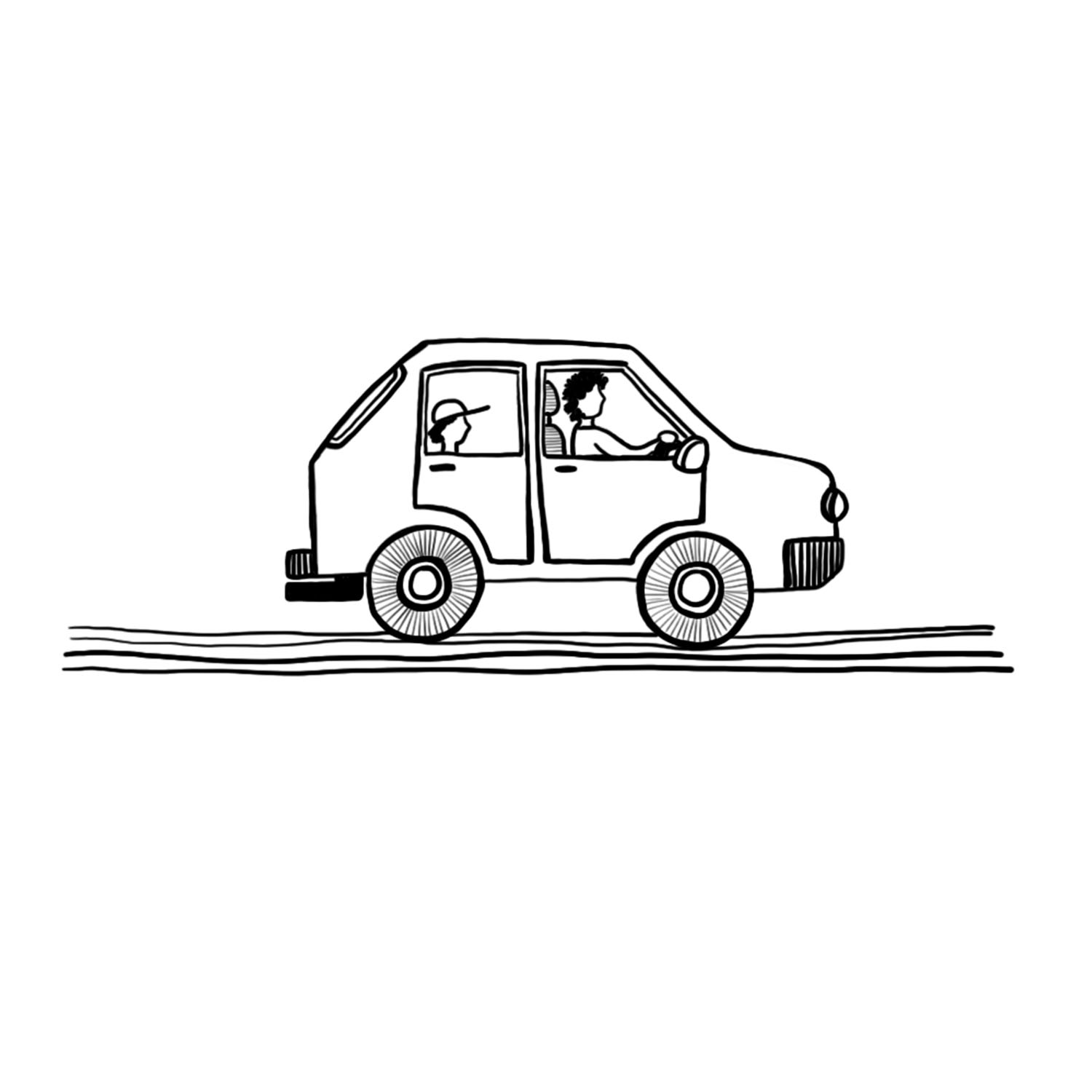“Hi! How was your day?”
Those are the first words you cheerfully blurt out in anticipation of hearing all about her day as your daughter pops into the car at pick-up after school. A curt “fine.” is what you get in response instead. Hurt from the brief and information-less response, you retreat into silence trying to figure out what went wrong.
Most parents don’t understand why she doesn’t want to talk about her day when she gets into the car. “I worry that I am losing touch with what is going on for her because she won’t tell me about what school was like and it is where she spends most of her time” they state. They take her short or non-responses personally and usually end up feeling hurt and disconnected.
As a child, she would jump into the car blabbing about this friend and that friend, what games she played that day on the playground and the details of a math game she won during class. Then one day at the end of fifth grade, she just stopped sharing. “It’s like she suddenly decided to shut me out. It is confusing and painful. I don’t get it. What did I do?”
Feeling shut out, you then up the push for information by asking specific questions about her day thinking that it will stimulate or even trick her into having a conversation. “How did that science test go today?” She replies blankly, “Good”, then returns to silence. Not wanting to give up, you keep trying by asking a few more specific questions and suddenly, she tosses and emotional flare into the front seat of the car.
“MOM!” She yells, “JUST LEAVE ME ALONE!”
As you turn off the car in the driveway she quickly jumps out, slams the car door and runs into the house, storming into her room declaring her frustration with door slam number two. You are left in the car holding the remnants of the emotional flare she tossed into the car, stunned, confused and feeling burned.
What’s going on?
I ask youth about what is going on for them and why they don’t want to tell you about their day and here is what I find over and over. Generally, they are equally confused about why they are acting this way. But there are a few things they are very clear about.
- They are not trying to consciously shut you out and hurt your feelings
- They don’t know why they don’t want to tell you about their day
- They just want some space
The last comment about wanting space is key to understanding what’s going on.
With the onset of puberty, youth begin to experience the greatest amount of brain growth since they were in utero. Growing brains, if you haven’t already noticed, don’t work very well and are messy. Suddenly she is forgetting things like her lunch, her coat or her homework.
“It’s like she is a little kid all over again…I thought she would be maturing, but she seems to be regressing” I hear mothers say.
“She was more responsible and capable in fourth grade than she is now.” I also hear.
And the most common one, “All of a sudden she can’t figure out what eat for a snack after school!”
This seeming return to toddlerhood comes at a time when parents, teachers, and coaches are expecting more responsible behavior from tweens and are quickly disappointed, frustrated and even angry about what they see as childish behavior.
The girls know that they are disappointing the adults in their lives and don’t understand what is happening to them, but they feel bad about themselves. Their self-esteem plummets as they can’t seem to please the important adults in their lives.
Add to that the emotional, physical and social changes that now are happening. Girls feel like there is no part of their life that is not changing. Finding acceptance is increasingly more difficult both at school and at home.
After a day of working hard to keep it together in school both academically and socially, they step into your car and enter into yet another place full of expectations of “showing up”-home. This stepping out of one set of expectations and into another without time to process what they just left, can send youth into a tailspin. They just want some space.
Three things you can do to make your car a moving sanctuary
Okay, that may be a stretch. But there are a few things you can do to make the ride home from school more pleasurable for all.
- Talk about the setup. Notice and Name it. Not in the car please! At another time, have a conversation about what you notice and be prepared to name it as she may not be able to due to the growing brain. Approach the chat unemotionally, calmly and matter-of-factly.
“I notice that when you get in the car after school there is tension” (the notice it)
“I want to connect with you after your day at school and you don’t seem ready to connect” (the name it)
or
“I notice when you hop in the car after school you don’t want to answer my questions about your day” (the notice it)
“I find I am taking your silence personally” (the name it)
There are two people with possibly different needs in that loaded moment after she steps into the car. You are excited to reconnect with her and she is trying to disconnect from her day at school.
Be curious about what her needs are. If necessary, you may need to notice and name it for her (messy brain development rules remember) But also, leaving room for silence while she is thinking is important. She may need some time to formulate her thoughts. Awkward silence is a good thing to get used to as it is needed during this time in her development.
“I find I am excited to see you/connect with you and hearing about your day brings me closer to you after being apart” (the notice it)
“It seems you may be__________” Insert words such as tired, overwhelmed, processing your day, etc. and chatting about your day is not what you want right then” (the name it)
Insert awkward silence here and just leave it and see what happens. A conversation may arise, or she may need more time to think. If you aren’t getting a response, notice and name that and try again later.
- Adjust your expectations. Give her the space to transition. You are the adult here with a fully formed brain. Decide to not take her behavior personally. Remember she is trying to process her day at school and adjust to the expectations of family life. Create an atmosphere in the car as a place of respite for her. Gather her without expectation, just simple acceptance.
Break the ingrained habit of asking the loaded question “How was your day?” as she is buckling her seatbelt. Instead, try something new.
“Hi! I am happy to see you.” Offer her a little snack.
“Hi” with a loving glance and put some music on.
Match your energy in the car with hers. If she is chatty, go there with her. If she is quiet, be that too. Accept that just sitting next to her right now is the most connection she can muster up at this point in her day. Connect with others in the car who are ready to chat if possible. Lovingly and patiently just hold her presence next to you without judgment.
- Figure out other ways to keep a connection. She does want to connect. The when and how connection happens may be changing as youth begin puberty and adolescence. As they step away from childhood, as they are developmentally directed to, their needs around connection are changing. Parents need to learn to adjust their needs for and types of connection with them.
Parents take their youths’ developmentally appropriate sudden silence, increasing need to be alone, and desire to be with peers as pulling away or disconnecting. They begin to pull away and disconnect. This further confuses youth who are already struggling with how to please so many people.
Notice the times in the day where she is more present. Is it after she has had some alone time in her room? After a snack? While making dinner? Just before bed?
Start simply. Avoid the question, “How was your day?” Try another question that is more specific and easy to answer just to get the chat started and let her take the lead by you just being gently curious. Try not to probe for information. And most importantly, notice when she is done.
Recreating car culture is up to you actually, not your youth
Changing the culture in your car from expectation to acceptance will eventually relieve awkward tension making room for connection as simple as just sitting next to each other. It takes consistency, patience and time to recreate car culture. As the driver/adult, it is up to you to lead the way in shifting gears from expectation to acceptance. Once your youth feels the level of acceptance in the car, she will gradually relax knowing that she is in a judgment-free zone. She might even surprise you one day and ask, “Hi, how was your day?” But don’t expect it.


Thanks Karen! This is helpful.